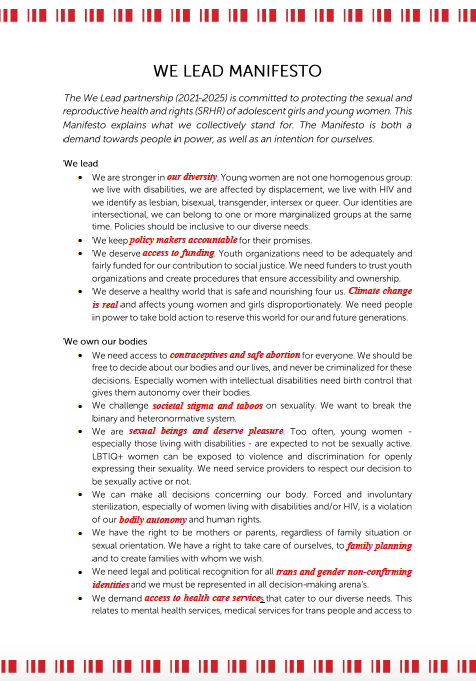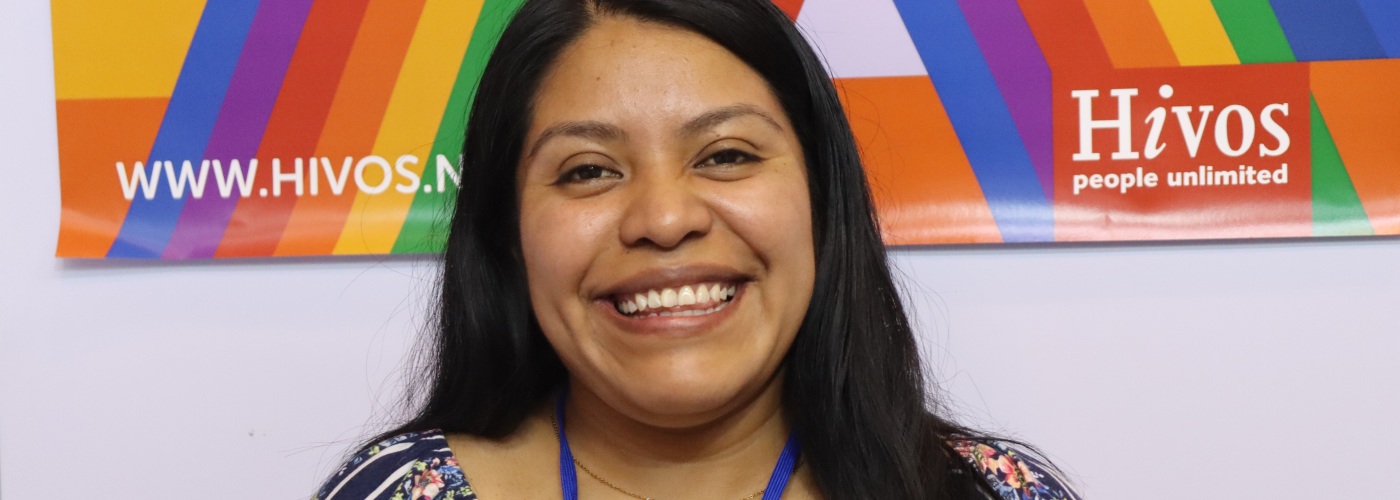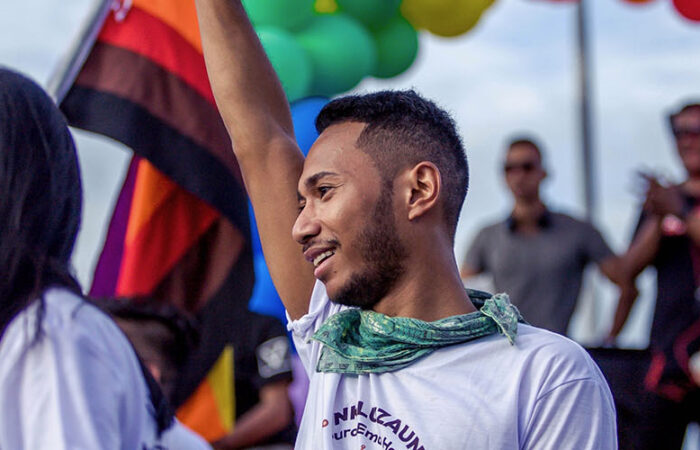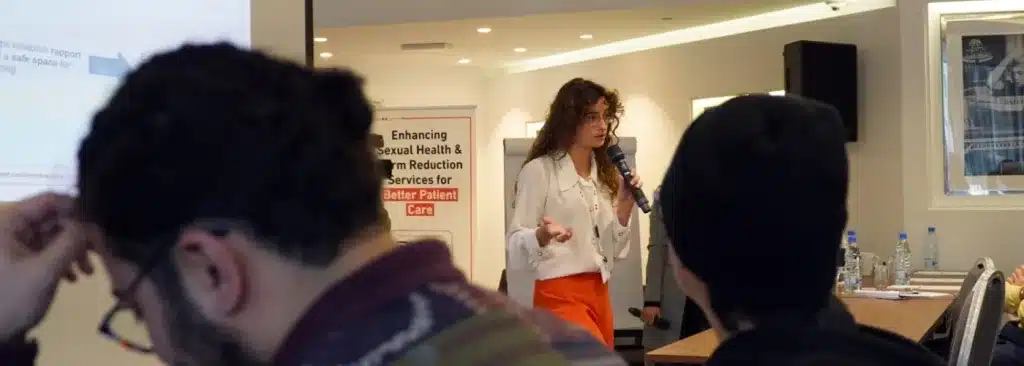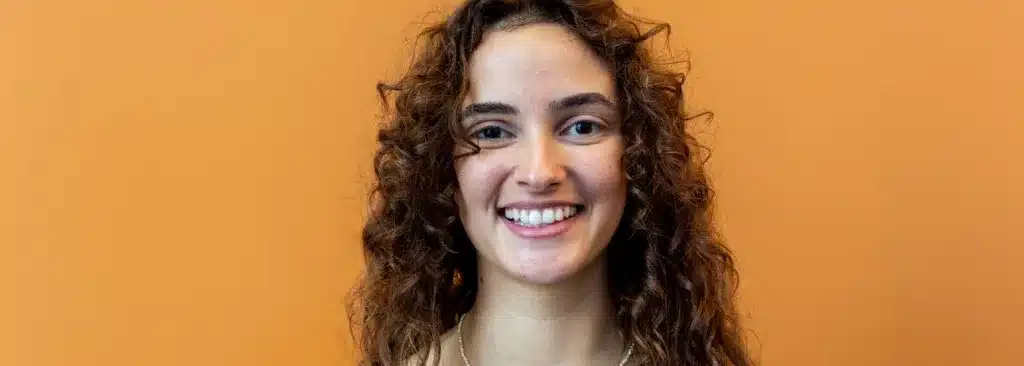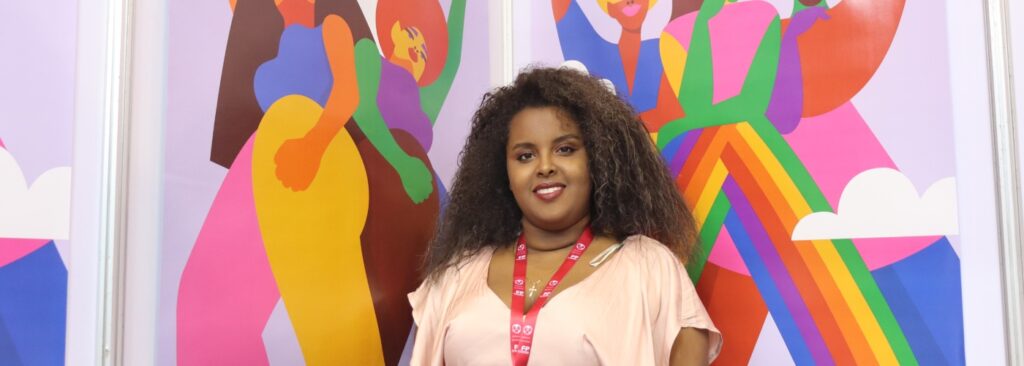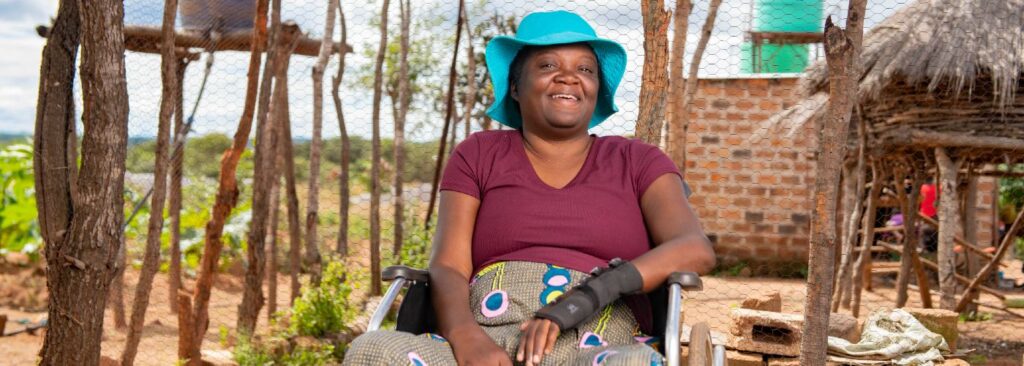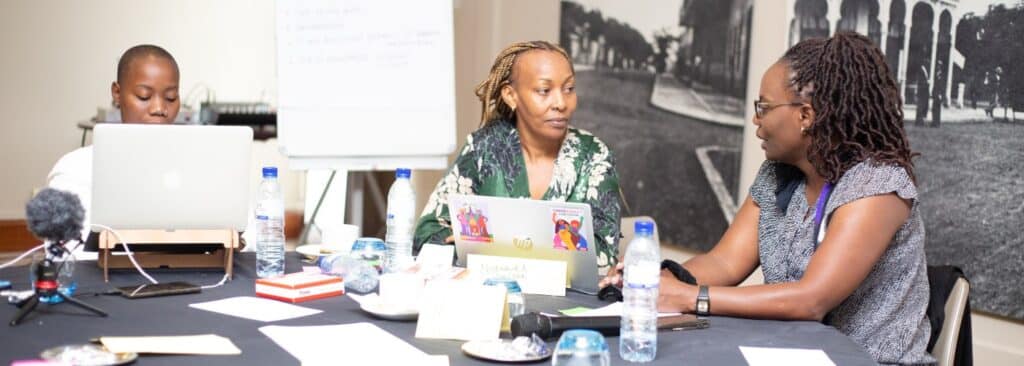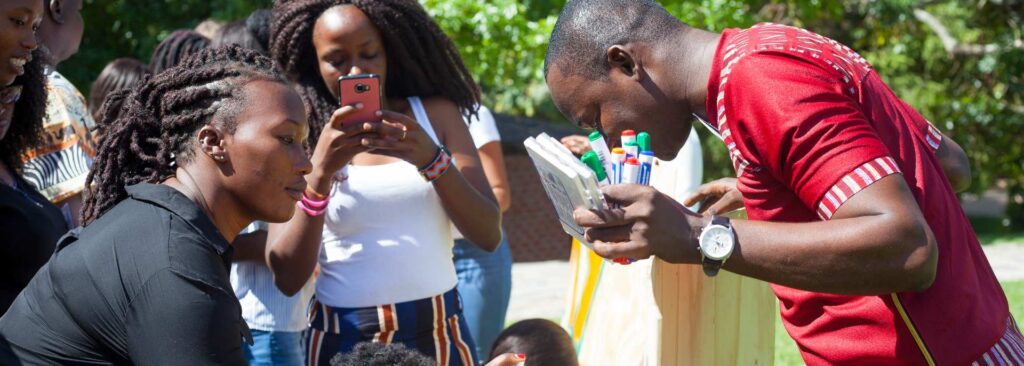We Lead in Guatemala: Information changes lives
Being a person with a disability in a rural area of Central America is difficult when the surroundings aren’t accessible. If on top of this you’re an Indigenous woman, it can mean a life of deprivation and few opportunities.
Floridalma Bocel Raxtun has lived with all these obstacles, but thanks to her desire for self-improvement, her life took a turn. Originally from a village on the shores of Lake Atitlán in Guatemala, she was born with spina bifida, a condition that occurs when the spinal column and spinal cord don’t form correctly. She is part of the 10.2% of Guatemalans with some type of disability and little to no state support.
Thanks to our We Lead program, which supports women and girls in vulnerable situations so they can learn about and take charge of their sexual and reproductive health and rights, Floridalma is “another person,” empowered and aware that information changes lives.
We asked her how she managed to turn her life around for the better.
How did you start in activism?
“I was always confined to the house because of my disability, the lack of accessibility, and a host of things in the family like: ‘Don’t do this ‘cause you’ll hurt yourself.’ But I wanted to leave home. So at 31, I decided to get involved with the Collective of Women with the Ability to Dream in Colors, where I was the only woman with a disability.
At first, I was afraid to participate, but with my sister’s support, who has always encouraged me and is my assistant, I took the plunge, I started to learn and share with other women.
Then the opportunity within We Lead came along. The program showed me that there is a diversity of people and that we are all unique. It gave us space to learn from each other and from ourselves, for example me, an indigenous woman with a disability.”
What has working with We Lead been like?
“When they asked our collective if we wanted to participate in the program, we said yes. We had our doubts, but we started to ask questions. They trained us to give workshops. We started out with the one on “self-love” because people were always rejecting us, telling us we’re weird, abnormal, that we should be a different size or skin color, just making us feel worthless.
Then little by little we moved on to other topics, like menstruation and family planning, until we got to sexual and reproductive rights. Our goal was to get 50 women from the community and other places to attend, but actually 75 to 80 showed up.
This is when I started getting more involved with We Lead. Now there are 14 of us in the coordination group, most are Indigenous and seven have disabilities. Giving workshops to other girls with disabilities was super nice because there were people who said we couldn’t do it. It’s not that we’re trying to be an example, but just show that we can do anything as long as we want to and like it.”
What obstacles have you all faced?
“Most women with disabilities depend on their family. It would be difficult for us to participate in this program if our family is opposed or doesn’t want to talk about reproductive rights or health because ‘it’s a sin.’ For example, when I got my first period, my family didn’t say a word about it to me. They said I wouldn’t understand and there was no need anyway because I was never going to live my own sexuality, have a baby, or have my own family. So there’s still a lot of work to be done.
If we – who are more involved in the collective – still have a lot to learn, imagine what it’s like for those who can’t leave their houses. In the workshops we found out that many of the girls attending are experiencing sexual violence at home. We’re very gratified that they feel comfortable enough to talk about such sensitive issues.
Another challenge is money, there are girls who need two assistants, and to come by taxi – it’s difficult.”
-
Gender Equality, Diversity and Inclusion
How we support rightsholders in their efforts to claim the power, agency, and leadership necessary to drive change.
What are your goals?
“I’d like to continue learning, prepare myself more, and support more women in need. It’s hard to find someone trustworthy, who goes through the same things as you, so it’s lovely when someone seeks you out because they need help.
It’s not impossible that my involvement with We Lead might help me find a job and continue studying. I’d like to study human rights.
I’ve met very nice people through We Lead. I also had a great opportunity I never could have imagined. I went to Thailand for a conference on family planning attended by people from all over the world. It’s been great to represent Indigenous women with disabilities. And great that people see we exist, that we’re there, that we’re part of the change, and that we want to be taken into account.
The change for me has been huge and positive. The Flory who’s talking to you now is very different from the one who first entered the collective and said: ‘Don’t try to speak or think because the answer will be wrong.’ The support from We Lead and other spaces has helped me grow as a woman and as a person. This makes me really happy because I know I’m going to support other women in turn.”
